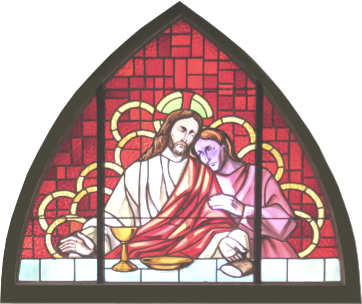When the white smoke came out of the Sistine Chapel at the Vatican on March 13, 2013 and a cardinal came out to announce “Habemus papam”, there was a wild cry of elation and relief at the St. Peter’s Cathedral Square and around the Catholic world watching the event on TV. We have a Pope he said. Shortly after that, Cardinal Jorge Mario Bergoglio of Argentina was introduced as the new pope who would be named Pope Francis. People wondered “Who is he?”
He turned out to be a first in various categories: first from the Americas, first Jesuit to be pope, first to be named Francis which he chose in honor of St. Francis of Assisi, a man who dedicated his life to simplicity and poverty.
Almost a year after his election, Pope Francis is proving to be a most popular Pope. He has maintained his dedication to the poor. When he was Archbishop of Buenos Aires, he gave up his palace and limousine for a small apartment and public transportation so he could visit the slums. In the same way, he did not stay at the official residence of the Pope, the Apostolic Palace. He lives at the Vatican guest house and eats with the other priests at their residence, Domus Sanctae Marthae, the easier perhaps for him to visit the poor.
By seeking out the poor and the marginalized, Pope Francis is following in the footsteps of Jesus Christ who came not for the saved but for the sinners. An early step Pope Francis did was to remove the bonuses for Vatican employees and put the funds towards helping the poor.
Another significant early move he made was to appoint an advisory board of eight cardinals from all the continents except Antarctica. Recently, Pope Francis brought in new personnel changes that seem to continue his desire to broaden and open up a traditionally reclusive Vatican. On January 15, he replaced four of the five cardinals appointed to govern the Vatican Bank, an entity that has been suspected of money-laundering. Gone was the former secretary of state Cardinal Tarcisio Bertone, replaced by the new secretary of state, Cardinal Pietro Parolin. The other three new ones are Cardinals Santos Abril y Castillo, Christoph Schonborn and Thomas Collins, the last two having been critical of bank operations. The one who remains is Cardinal Jean-Louis Tauran, president of the Commission of Inter-religious Dialogue.
We are hopeful and prayerful that Pope Francis solves the many problems confronting the Church such as the issues of pedophile priests, Vatican leaks, women priesthood and the apparent control of women religious leadership. An important move he can make is to reinstitute seventy-five-year old Fr. Roy Bourgeois to the priesthood and to the Maryknoll Order of Fathers and Brothers. Father Roy, you will recall, was excommunicated for celebrating mass and giving the homily at the ordination of a Janice Sevre-Duszynska as a woman priest in Lexington, Kentucky in August, 2008.
But don’t hold your breath. Based on his pronouncements as a Cardinal-Archbishop, Pope Francis seems to hold traditionalist views on women priesthood and the role of women in the church. But things can change as he gets more input from the wider constituency. For example, when asked for his thoughts on homosexuals, he gave the now popular non-papal reply, “Who am I to judge?” Ten years ago, he probably would have launched into a homily on the sanctity of the holy marriage between a man and a woman.
Sooner or later, the Catholic Church will have to face the problem of a drastically dwindling number of celibate male priests. One possible solution is to ordain married men. (Earlier, married men may be ordained to priesthood. Until the twelfth century, priests, bishops and 39 popes including the first Pope, St. Peter were married. Movements for celibacy started because of inheritance problems and celibacy was imposed following the Second Lateran Council in 1139. Not quite in accord with the Lord!) But more than this practical aspect is the implicit arrogance of the unjust claim that only a man can fathom and convey the divinity of God.
Is Pope Francis a breath of fresh air? Indeed, he is. His willingness to listen and to hobnob with the lowly and aggrieved tends to open up a close and strictly orthodox church. He said that the church had concerned itself with small-minded rules and was so prone to condemn those who break them. He doesn’t believe that the church’s pastoral ministry should be obsessed with the transmission of disjointed doctrines to be imposed insistently. He wants a new balance to bring forth “the freshness and fragrance of the Gospel”. And he is showing his love by his actions.
Written by Dr. Eusebio Koh
Past Grand Knight: Santo Nino Council #12415
Filipino Journal: Columnist
Jan. 20 – Feb. 05, 2014 | Volume 28, Number 02


